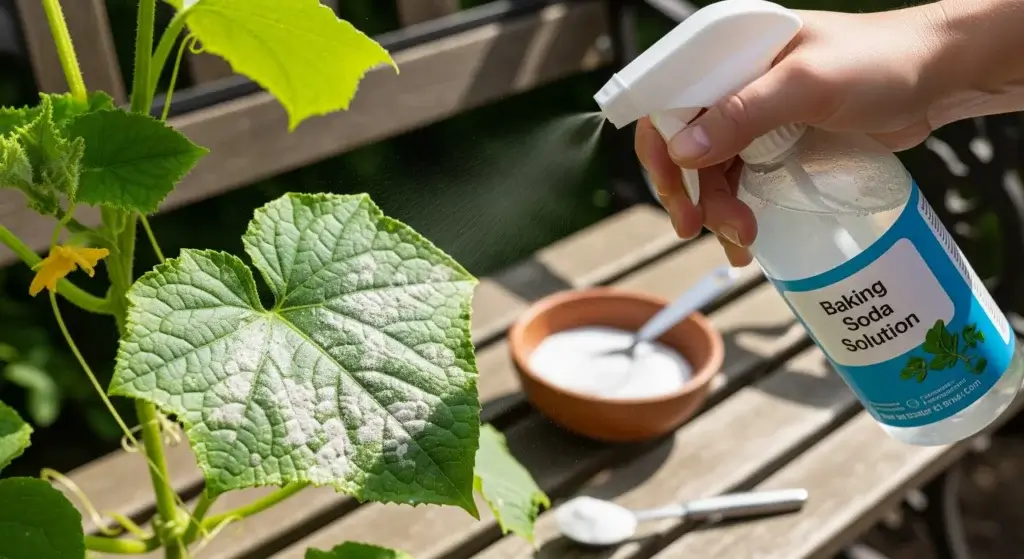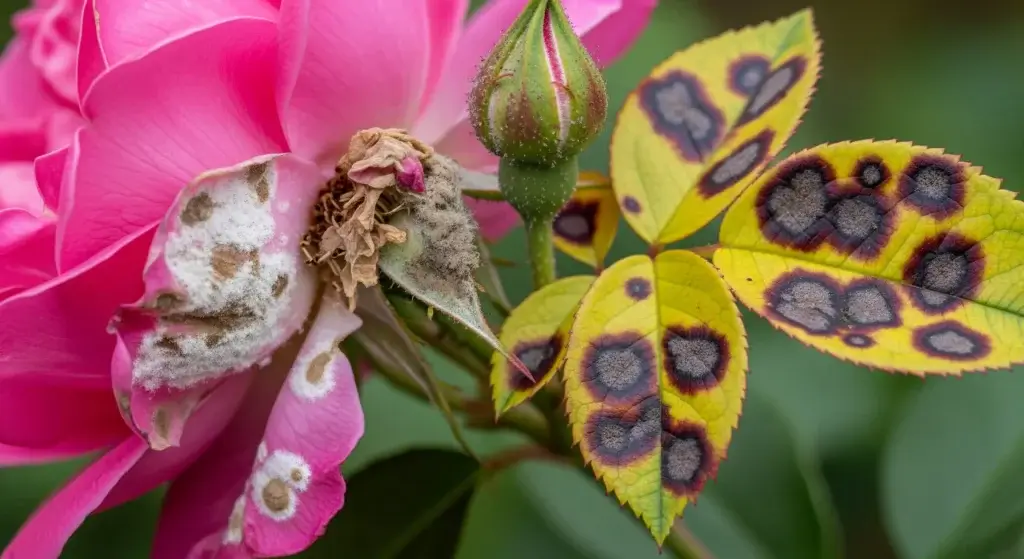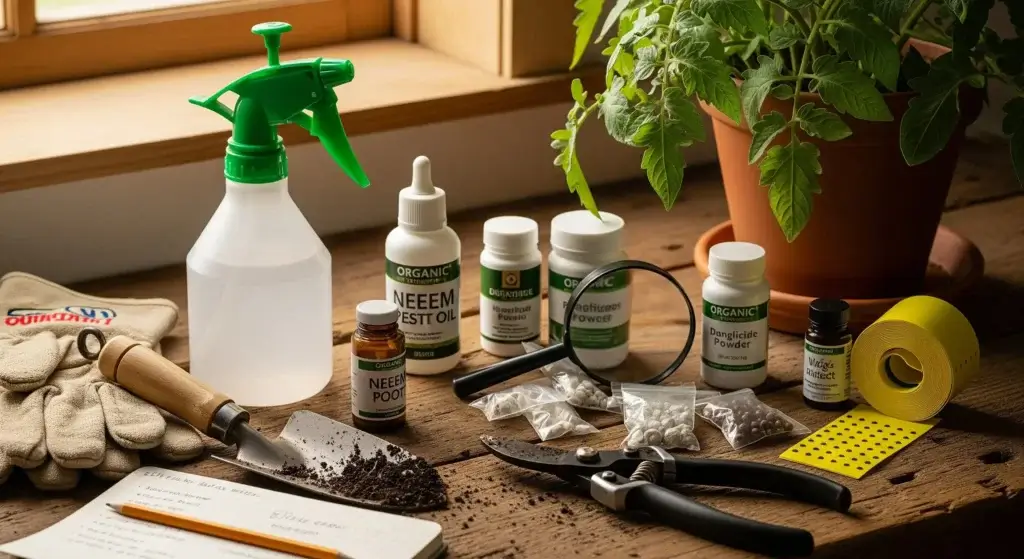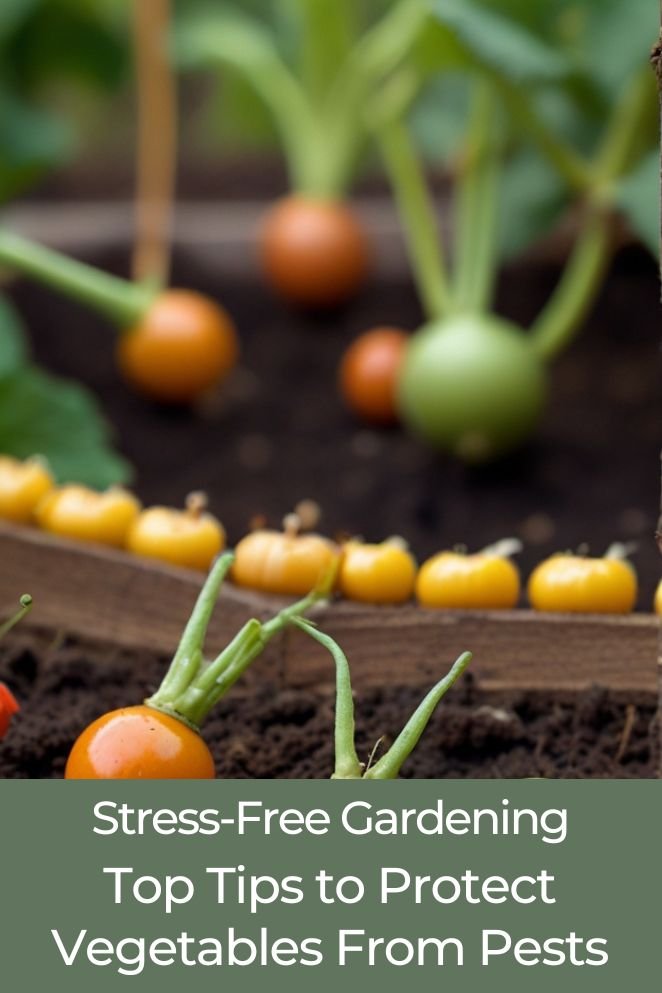
Protecting your vegetable garden from pests is crucial for maintaining a healthy and productive crop.
Pests can cause significant damage to plants, leading to reduced yields and poor plant health.
In this article, we will discuss preventative measures, treatment options, and organic pest control methods to help you protect your vegetables from pests.
Common Pests That Affect Vegetables
Here’s a breakdown of common pests that often target vegetables:
Imported cabbageworm
These caterpillars have a voracious appetite for brassica plants like cabbage and broccoli.
They munch on the leaves, potentially causing significant damage to the plants.
Whiteflies
These tiny insects are notorious for feeding on the undersides of leaves.
Their feeding can weaken plants, leading to symptoms like yellowing leaves, wilting, and premature leaf drop.
Aphids
These small insects pose a threat by sucking sap from plants, which can result in distorted growth and diminished plant vigor.
They reproduce rapidly, making them a persistent nuisance in vegetable gardens.
Caterpillars
The larval stage of moths or butterflies, caterpillars can wreak havoc on vegetable plants.
They may chew through leaves, stems, flowers, fruits, and even roots, causing extensive damage if left unchecked.
Green vegetable bugs
These stinkbugs are known for their appetite for various vegetables and fruits, including beans and raspberries.
Their feeding can result in unsightly damage to crops.
Fruit flies
These pesky flies lay eggs in soft fruit, leading to the fruit’s premature rotting and eventual drop.
Fruit flies can quickly become a problem in gardens, particularly during the warmer months.
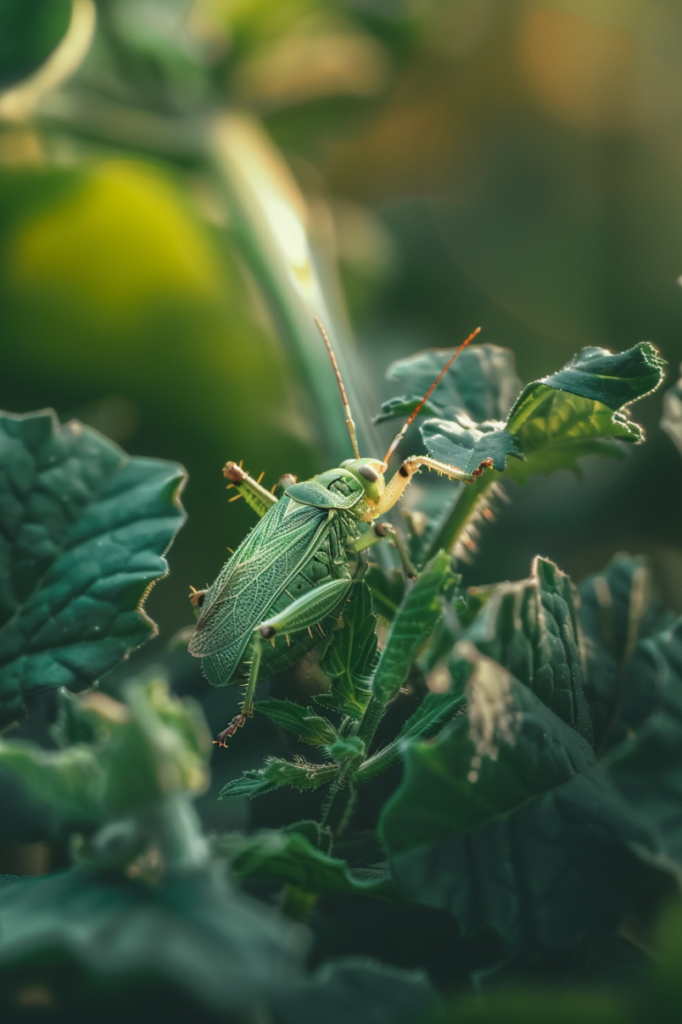
Preventative Measures
Here are some preventive measures to keep common pests at bay:
Choosing the right plants
Opt for vegetables that are less attractive to pests.
Leafy greens like lettuce and spinach, as well as root vegetables such as carrots and radishes, are less likely to draw pests compared to other crops.
By selecting these varieties, you can reduce the likelihood of pest infestations in your garden.
Creating a healthy environment
Maintain a clean and tidy garden environment to discourage pests from taking up residence.
Regularly remove debris, fallen leaves, and weeds, as these can provide hiding spots and breeding grounds for pests.
Keeping the garden clean minimizes the available habitats for pests, making it less hospitable for them to thrive.
Utilizing natural deterrents
Planting companion crops can help repel pests and protect your vegetable plants.
Marigolds and nasturtiums, for example, emit odors that deter certain pests like aphids and whiteflies.
By strategically interplanting these companion crops among your vegetables, you create a natural barrier that discourages pests from settling in your garden.
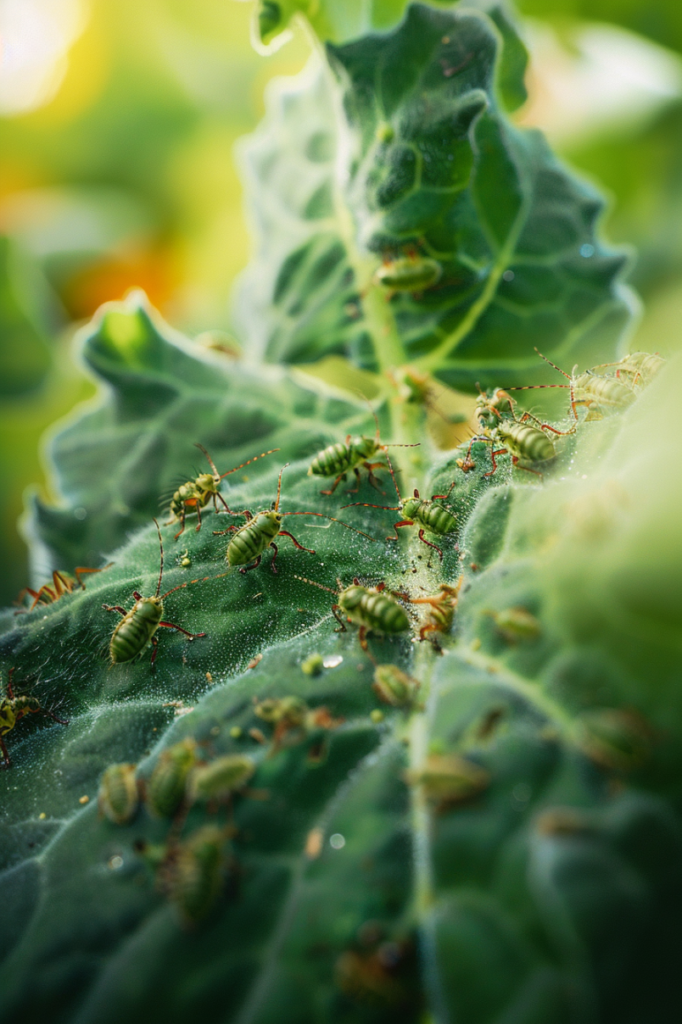
Treatment Options (if Prevention Fails)
When prevention measures fall short and pests still manage to infiltrate your vegetable garden, it’s crucial to swiftly address the issue with appropriate treatment options:
Identifying the pest
Begin by identifying the specific pest causing damage to your vegetables.
Different pests require different treatment approaches, so accurate identification is key.
Look for telltale signs such as chewed leaves, aphid clusters, or caterpillar droppings to pinpoint the culprit.
Organic pest control methods
Organic pest control methods offer effective solutions for managing pests while minimizing harm to beneficial insects and the environment.
Options like insecticidal soap, neem oil, and diatomaceous earth can help control pests without resorting to synthetic chemicals.
Insecticidal soap works by suffocating soft-bodied pests like aphids and whiteflies, while neem oil acts as a repellent and disrupts pests’ growth cycles.
Diatomaceous earth, a natural powder made from fossilized algae, damages insects’ exoskeletons, leading to dehydration and death.
Choosing the right insecticide
If organic methods prove insufficient, selecting the appropriate insecticide becomes necessary.
Ensure you choose an insecticide that targets the specific pest plaguing your garden and adhere strictly to the manufacturer’s instructions to maximize effectiveness and minimize risks.
Look for insecticides labeled for use on vegetables and follow dosage recommendations meticulously to avoid harming plants or beneficial insects.
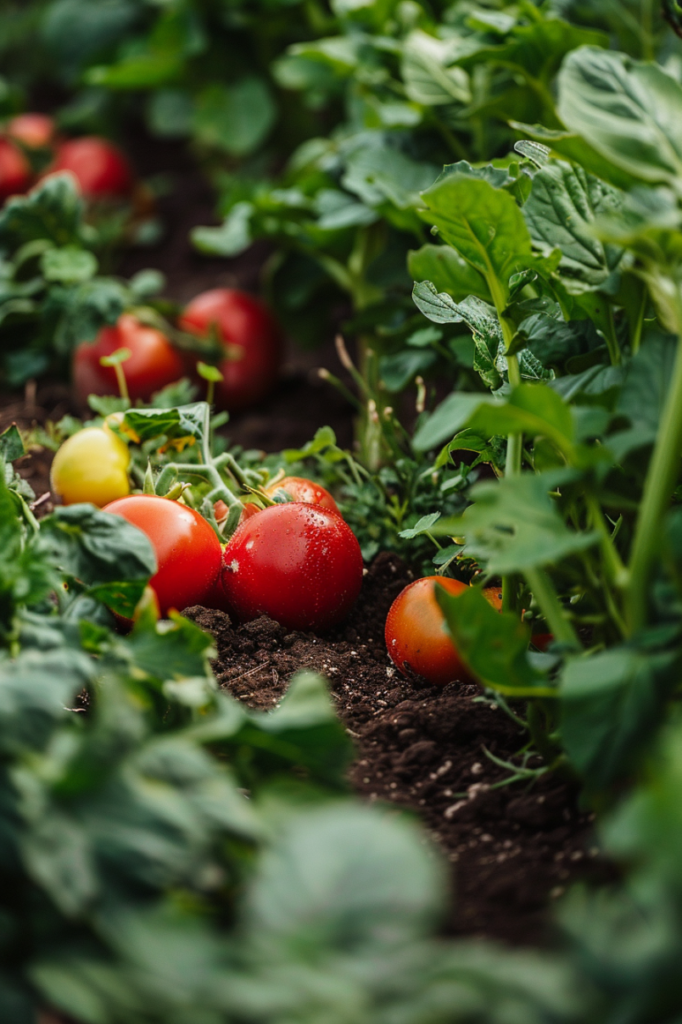
Conclusion
Protecting your vegetable garden from pests requires a combination of preventative measures and, when necessary, organic pest control methods.
By understanding the different types of pests and the most effective control methods, you can maintain a healthy and productive garden.
FAQs
Common pests include aphids, cabbage worms, and squash bugs.
Preventative measures include choosing the right plants, creating a healthy environment, and utilizing natural deterrents.
Organic pest control methods include insecticidal soap, neem oil, and diatomaceous earth.
Select an insecticide that is specific to the pest you are targeting and follow the manufacturer’s instructions carefully.
Yes, companion plants like marigolds and nasturtiums can repel certain pests.

